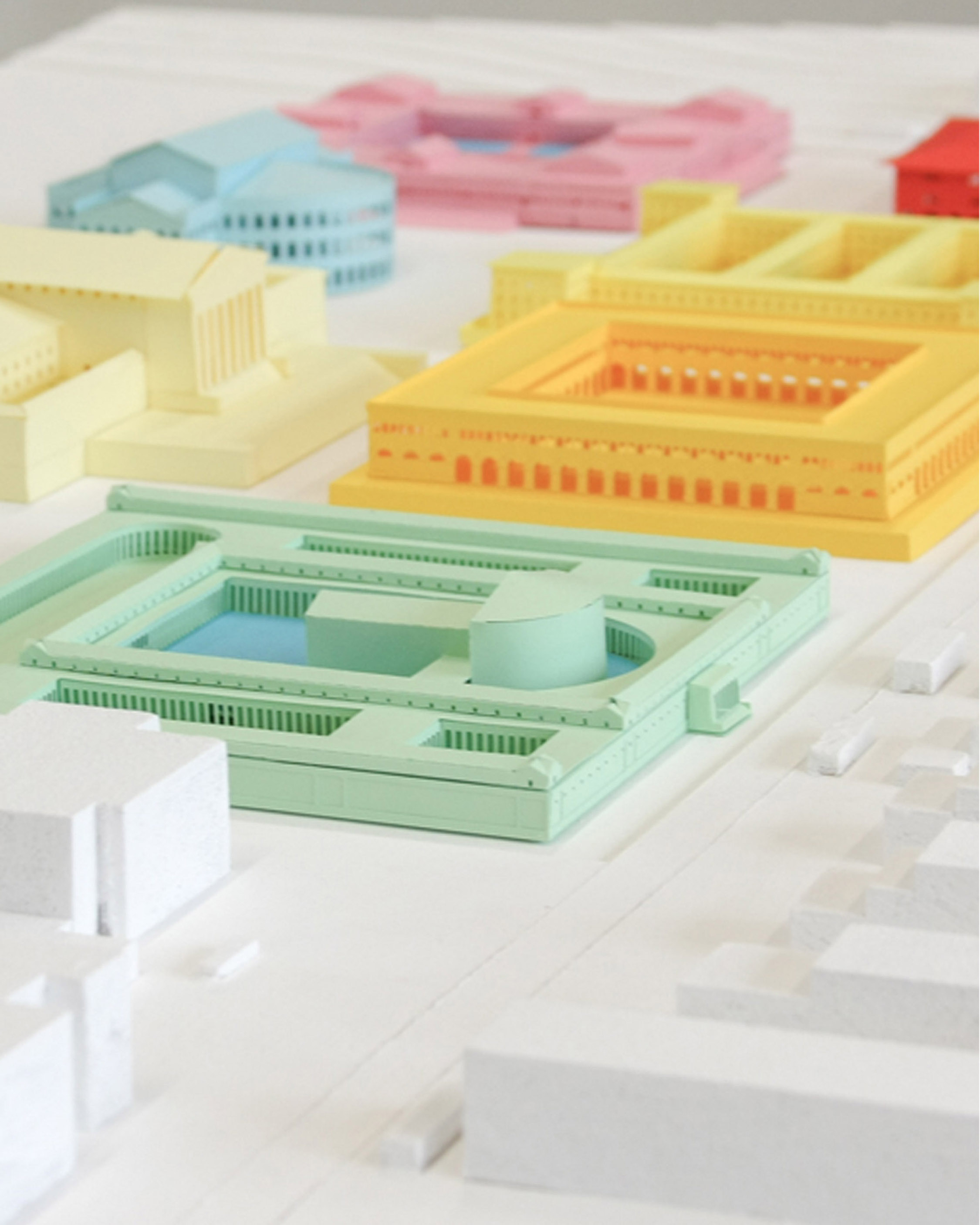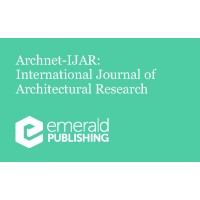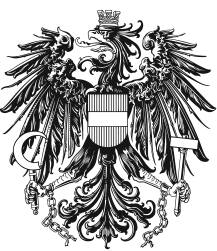Hybrid Practices
![]()
︎︎︎
![]()
Archnet-IJAR: International Journal of Architectural Research
If there is anything that living in the Anthropocene tells us, it is that the stability of disciplinary certainties and methods may no longer be adequate. We seek contributions that amplify reflection within architectural theory and design research yet push at the discipline’s methodological and theoretical boundaries to address urgent ecological, political, and urban challenges. Too often, design research is constrained by ontological debates about its relevance, limiting disciplinary progress. Instead, this issue moves beyond those debates, foregrounding design research as both a critical and projective tool. We are interested in contributions that reconcile, mediate, or transgress those positions.

Hybrid Practices – Practice/Design/Theory-Based Research in Architecture is a forthcoming special issue of Archnet-IJAR – International Journal of Architectural Research, guest edited by Cameron McEwan and Andreas Lechner, that examines the intersections of architectural practice, design, and theory as critical modes of research, articulating how hybrid methodologies generate new knowledge for pressing issues.
︎︎︎ Call for Papers
︎︎︎ Call for Papers
︎︎︎

Archnet-IJAR: International Journal of Architectural Research
Guest editors
Cameron McEwan,
Andreas Lechner
Key deadlines
Opening date for manuscripts submissions: 10/03/2025
Closing date for manuscripts submission: 15/12/2025
Concise References
Agrest, Diana. Architecture of Nature/Nature of Architecture. Novato, CA: ORO Editions/Applied Research & Design, 2018.
Brenner, Neil, and Christian Schmid. “Towards a New Epistemology of the Urban?” City 19, no. 2+3 (2015): 151–82. https://doi.org/10.1080/13604813.2015.1014712.
Easterling, Keller. Medium Design: Knowing How to Work on the World. Brooklyn, NY: Verso, 2021.
Haraway, Donna J. Staying with the Trouble: Making Kin in the Chthulucene. Durham: Duke University Press, 2016.
Iturbe, Elisa. “Architecture and the Death of Carbon Modernity.” Log 47 (2019): 10–23.
Gandelsonas, Mario. X-Urbanism: Architecture and the American City. New York: Princeton Architectural Press, 1999.
Lechner, Andreas. Thinking Design: Blueprint for an Architecture of Typology. Zürich: Park Books, 2021.
McEwan, Cameron. Analogical City. Brooklyn, NY: punctum, 2024. 10.53288/0386.1.00.
Pope, Albert. Inverse Utopia: Urbanism and the Great Acceleration. Basel: Birkhäuser Verlag GmbH, 2024.
Viganò, Paola. Territories of Urbanism: The Project as Knowledge Producer. Translated by Stephen Piccolo. Lausanne: EPFL Press, 2016.
Viganò, Paola, and Chiara Cavalieri, eds. The Horizontal Metropolis: A Radical Project. Zürich: Park Books, 2020.
Voet, Caroline, Eireen Schreurs, and Helen Thomas, eds. The Hybrid Practitioner: Building, Teaching, Researching Architecture. Leuven: Leuven University Press, 2022.
Wark, McKenzie. “Toward the Common Task.” In Sensoria: Thinkers for the Twenty-First Century, 1–8. New York: Verso, 2020.
Wong, Liliane. Adaptive Reuse in Architecture: A Typological Index. Basel: Birkhäuser, 2023.
If there is anything that living in the Anthropocene tells us, it is that the stability of disciplinary certainties and methods may no longer be adequate. We seek contributions that amplify reflection within architectural theory and design research yet push at the discipline’s methodological and theoretical boundaries to address urgent ecological, political, and urban challenges. Too often, design research is constrained by ontological debates about its relevance, limiting disciplinary progress. Instead, this issue moves beyond those debates, foregrounding design research as both a critical and projective tool. We are interested in contributions that reconcile, mediate, or transgress those positions.
Architectural research must respond to pressing planetary, urban, and socio-political challenges, which are spatial crises demanding spatial knowledge and hence an architectural response. Recent scholarly work by Albert Pope (2024), Caroline Voet et al. (2022), Keller Easterling (2021), Andreas Lechner (2021), Elisa Iturbe (2019), Diana Agrest (2018), Paula Vigano (2016), and Neil Brenner and Christian Schmid (2015) examines architecture’s shifting epistemologies and the interplay between pedagogy, practice, theory, design, and representation. In different ways they explore the relations and practices of architectural knowledge. Initiatives such as the New European Bauhaus, UN-Habitat’s Urban Resilience Hub, the Anthropocene Commons global network, and the foundational ETH Studio Basel underscore the role of design in responding to systemic issues.
This special issue on Hybrid Practices curates a selection of studies that critically engage with design research, speculative experimentation, and interdisciplinary inquiry. We encourage contributions that develop hybrid constructions, models of theory and practice, and propositional work that open new and alternative pathways. We are interested in, for example, how pragmatic problem-solving engages speculative thinking about alternative futures, or how theoretical close readings bear on the facts and forms of climate change, or how extraction critique and typological readings generate alternative approaches to peripheral urbanisation.
List of topic areas
1. Hybrid practices: pedagogy and knowledge production, conceptual speculation and practical application;
2. Tectonic hybrids: typological innovation, mixed-use and hybrid programs, post-extractive design strategies, circular economies.
3. Urban futures: peripheral and dispersed urbanism, zwischenstadt, città diffusa, after sprawl, policy-driven spatial interventions.
4. Planetary imaginaries: world-making and architectural imaginaries beyond growth-driven paradigms, alternative pedagogies that challenge traditional architectural education, design research in the time of the Anthropocene.
Architecture is a comprehensive discipline that incorporates theory, history, technology, and the societal impact of the built environment. Architects operate in multiple capacities that bridge academic inquiry with practical application. This perspective fosters an integrative approach that allows for the exploration of adaptive reuse, building typology, and environmental sustainability. Voet et al. (2022) introduce the concept of the hybrid practitioner—one who seamlessly combines design, teaching, research, and various other roles to enrich architectural discourse and practice. The book is structured into five thematic parts, examining the interconnections between practice, education, cross-disciplinary engagements, reflective drawing, and sustainability. Through this framework, the hybrid approach emerges as an essential methodology for navigating the complexities of contemporary architecture. Hybrid architectural practices offer a model for addressing the multifaceted challenges facing the built environment. By integrating building, teaching, and researching as interconnected yet distinct practices, architects can foster a more dynamic and responsive discipline. The hybrid approach provides a framework for navigating the intersections of theory and practice, ensuring that architectural interventions are both contextually informed and forward-thinking. As contemporary architecture continues to evolve, the role of hybrid practitioners will become increasingly vital. Their ability to bridge disciplinary boundaries, engage with pressing environmental and socio-political issues, and contribute to both academia and professional practice positions them as key agents of change. By embracing the hybrid nature of architectural production, practitioners can develop innovative strategies for adaptive reuse, sustainability, and resilient urban development, ultimately shaping the future of the built environment.
ARCHITEKT ANDREAS LECHNER
Attemsgasse 11
8010 Graz / Austria
![]()
Attemsgasse 11
8010 Graz / Austria
Staatlich befugter und beeideter Ziviltechniker
© Andreas Lechner. All rights reserved. Unless otherwise stated, all materials on this website and the ideas incorporated herein, as an instrument of professional service, are protected by copyright and other intellectual property rights belonging to Andreas Lechner, its affiliates or its licensors and all such rights are hereby asserted and reserved. No part of this website may be copied, reproduced, republished, posted, transmitted or distributed in any way for commercial purposes. Any modification or use of the information contained on this website for any purpose not explicitly permitted without prior written consent is a violation of the author’s intellectual property rights and is strictly prohibited. CV · Imprint
